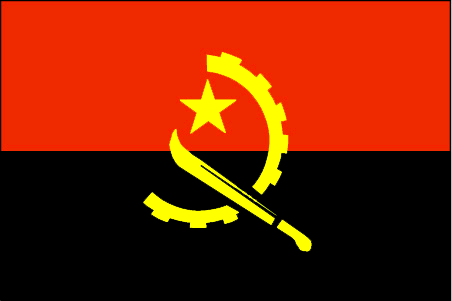- Home
- About Angola
About Angola
Introduction
Angola celebrated 14 years of peace after the signing of the Luena Agreement in 2002. In August, the country helded its second legislative elections since the end of the war and the first under the new constitution, with no longer direct election of the President.
Angola experienced rapid and prolonged economic growth during the last six years. During this period, the country steadily invested in rebuilding its national infrastructure and in launching socio-economic reforms, which are expected to have great impact on the living conditions of the population. However, given the current composition of GDP, the economic perspectives for Angola in 2009 are uncertain. In such circumstance, Angola must double its efforts to grapple with the challenges of economic diversification , with empahasis on agriculture and light manufacturing sector.
History
The anti-colonial war erupted in 1961 and only ended in November 1975 when the Portuguese flag was lowered in Luanda. But the Nation’s liberators soon turned their guns against each other. The country was to become the theatre of cold war political and military competition, each side eventually using tanks, surface-to-air missiles paid with diamonds, oil and debt.
The independence movement was made up of three rival groups – the MPLA (Popular Movement for the Liberation of Angola), the FNLA (National Front for the Liberation of Angola) and UNITA (National Union for the Total Independence of Angola). Joined by the common goal to free Angola, once independence had been achieved, the groups became rivals. Foreign meddling exacerbated the civil war. The Marxist MPLA were backed by the Soviet Union and Cuba. UNITA was supported by the USA and the white government of South Africa.
In 1988, a ceasefire was agreed and maintained by a United Nations peacekeeping force. But after an MPLA election-win in 1992, won by José Eduardo dos Santos (who had succeeded Neto in 1979), the opposition party again took up arms.
27 years of civil war finally ended in April 2002, when the leader of UNITA was killed.
Challenges
This is a country in desperate need to improve its public management systems and basic service delivery at all levels and expand its ability to curb corruption and increase accountability; to promote inclusive and democratic governance processes; to create employment;to promote the rule of law, human rights and sustainable human development.
Within this context, UNDP Angola needs to improve its effectiveness and position itself as a valued, trusted and reliable provider of upstream quality policy advisory services and technical assistance, in strong partnership with the government, civil society, key donors and the private sector. Additionally, in line with its mandate, UNDP will better support the coordination and enhancement of the efficiency of the UN system as well as its effectiveness towards more integration and harmonization with UN sister agencies.
Successes
Angola celebrated 14 years of peace after the signing of the Luena Agreement in 2002. In August 2012, the country held its second legislative elections since the end of the war and the first under the new constitution, with no longer direct election of the President. By-and-large considered better organized than the 2008 elections, but the level of absenteeism was 40%.
The MPLA secured 71.8% of the vote (81% in 2008) and the opposition parties increased the number of seats by 45. A new political party created from dissidents of UNITA and the MPLA made significant gains. In keeping with the new Constitution, the leader of the majority party in the National Assembly, Jose Eduardo dos Santos, was declared President of the Republic.
The theme for the MPLA political programme for the next five years is “more growth, better distribution.” The new Government is developing a five year development plan to deliver on this promise with a focus on diversification of the economy, investment in the social sector and agricultural development.






